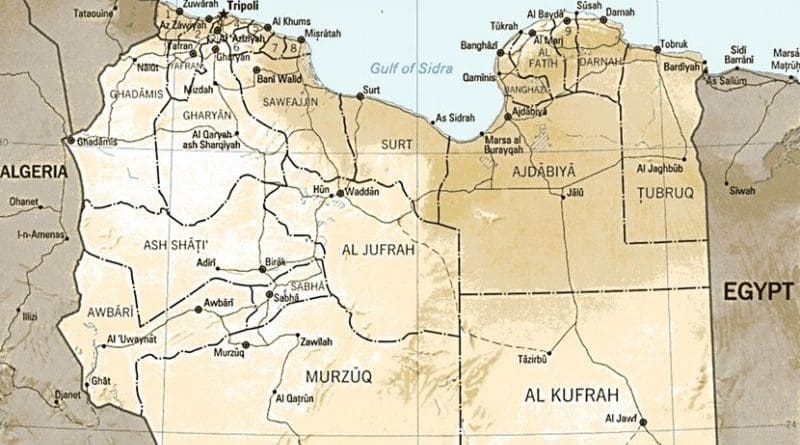Why Is Libya Cooperating With Turkey To Expand The Oil Sector? – OpEd
A new agreement was concluded between Libya and Turkey regarding energy exploration. This agreement highlighted tensions between Greece and Egypt, which opposed any activity in the disputed areas in the eastern Mediterranean. In addition, the Libyan parliament refused the agreement because eastern Libya supports an alternative administration for the agreement.
Both Turkey and Libya showed that this agreement will improve economic issues aimed at many benefits for both countries. Also, this is not the first agreement; there was an agreement with Turkey to establish training centers to build a professional army in Libya. This came during the visit of the Turkish Minister of Defense and his accompanying delegation to the Libyan territories.
A gas agreement with Turkey was also discussed, but the Libyan parliament sent a letter to the United Nations to internationalize the position on a deal signed by the previous government with Turkey with the aim of drilling for oil and gas in regional waters and on Libyan territory.
This memorandum was concluded by the expired Libyan National Unity Government, which issued Resolution No. 10 for the year 2021 under the government of Abdul Hamid al-Dabaiba, “Based on that decision, the constitutional end of its mandate, and in accordance with the terms of the political agreement, and on its failure to carry out its duties and tasks specified in the map, the path issued by the Political Dialogue Forum was issued in December 2020.”
The memorandum of understanding for oil and gas exploration in the economic waters of the eastern Mediterranean with Turkey is contrary to the text of Article VI, the tenth paragraph of the political agreement, which states that the authority does not consider, during the preliminary stage, the implementation of agreements or decisions that harm the stability of the Libyan state’s foreign relations or impose obligations on it. This will lead to a decline in security and stability in the eastern Mediterranean region.
Middle Eastern countries were angry about that cooperation as they asserted that there are many countries sharing a maritime border.
The member states of the Arab League referred to the Security Council to warn the end of the legitimacy of the current government due to its violation of the provisions of the roadmap issued by the Political Dialogue Forum.
Cyprus announced its concern over the signing of a memorandum of understanding. And this memorandum is illegal for year 2019, and the statement stressed that this agreement works to destabilize. “They need more clarification because this memorandum of understanding contradicts the law of the sea and violates the rights of other countries,” referring to the year 2019.”
The foreign ministers of Egypt and Greece also stressed that the unity government did not have any legal basis to sign that agreement and did not have powers. The Greek Foreign Ministry issued a statement confirming that it, “has sovereign rights on the continental shelf and will defend them by all legal means before international courts in line with the memorandum” invalidating the delimitation agreement. The maritime border between the Government of National Accord (former Libyan) and Turkey in 2019″ and we need the intervention of the European Union and the North Atlantic Treaty Organization (NATO).
The memorandum of understanding between the Libyan and Turkish sides in the matter of energy stipulates the strengthening of cooperation between the two countries in the practical, technical, technical, legal, and commercial aspects in the field of hydrocarbons. Furthermore, 73 members of the State Council in Tripoli, or about two-thirds of the members, announced their refusal to sign the memorandum of understanding, saying that it contained vague articles and that there was an attempt to impose a fait accompli. The goal is to exchange information and experience, hold joint conferences, seminars, and exhibitions, increase cooperation between the public and private sectors, and develop projects in accordance with the procedures and laws followed in Libya.
Finally, it is possible that the new Turkish agreement with Libya will be reflected in its relationship with Cairo, which witnessed cooperation and restoration of diplomatic relations between the two parties and Egypt’s intervention in negotiations with Libya to improve the security situation in Libya.

